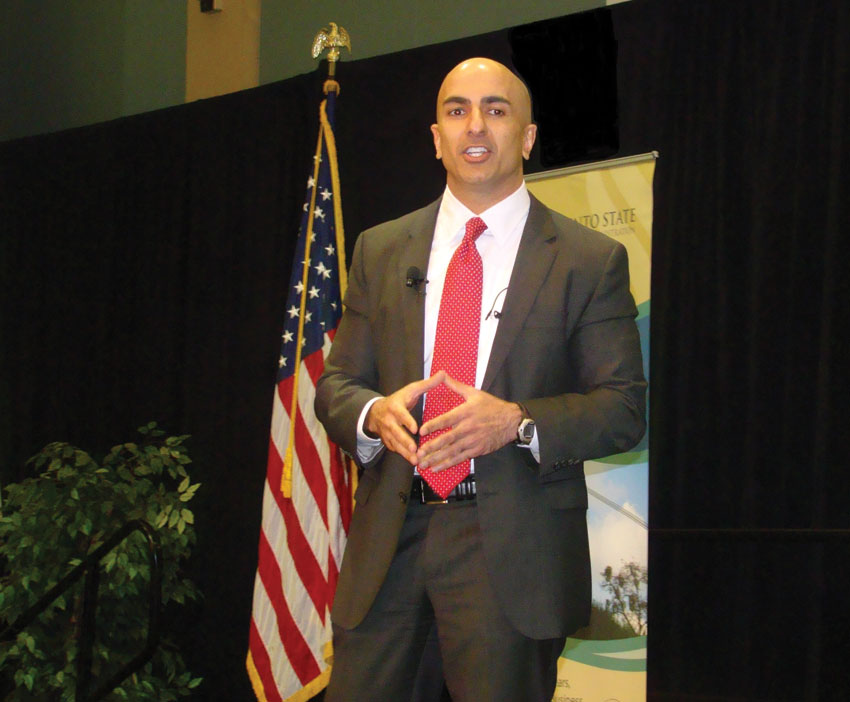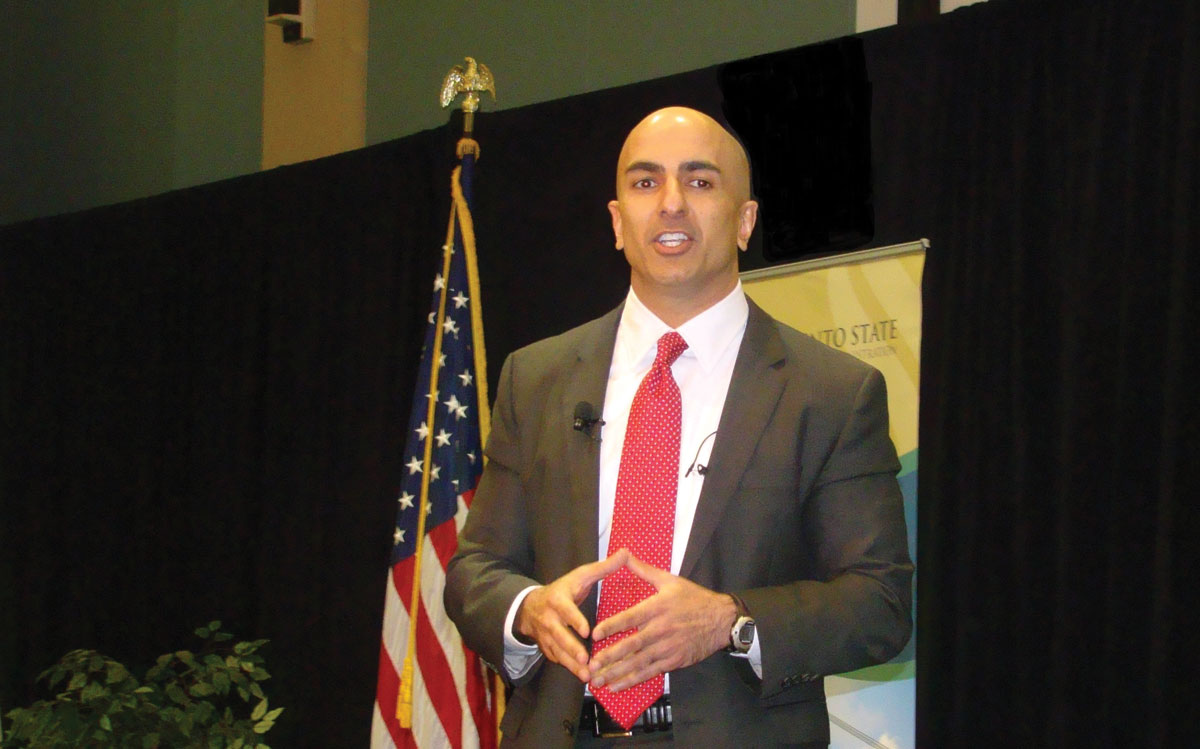BREAK UP BIG BANKS TO SMALLER ONES

Noting that the biggest banks continue to pose a significant risk to the U.S. economy, Indian American top federal bank official Neel Kashkari has called for breaking them into smaller ones, writes Lalit K. Jha. (#Finance, @NeelKashkari, @Siliconeer, #Siliconeer)
“I believe the biggest banks are still too big to fail and continue to pose a significant, ongoing risk to our economy,” Neel Kashkari, 42, President of the Federal Reserve Bank of Minneapolis, said in his first major public appearance after occupying the top fed position recently.
Kashkari, who served in the Bush administration as a top Treasury official at the time of the 2008 financial crisis, said that enough time has passed to understand causes of the crisis and it is still fresh in their memories.
“Now is the right time for Congress to consider going further than Dodd-Frank with bold, transformational solutions to solve this problem once and for all,” Kashkari, the former U.S. Treasury official who led the 2008 bailout program for the nation’s biggest banks, said in his remarks at the Brookings Institute, a top think tank.
Kashkari, who lost the last election of governor in California, said the policy makers must give serious consideration to a range of options including breaking up large banks into smaller, less connected, less important entities as efforts to rein in the banks through the 2010 Dodd-Frank law “did not go far enough.”
He suggested turning large banks into public utilities by forcing them to hold so much capital that they virtually cannot fail (with regulation akin to that of a nuclear power plant) and taxing leverage throughout the financial system to reduce systemic risks wherever they lie.
“Options such as these have been mentioned before, but in my view, policymakers and legislators have not yet seriously considered the need to implement them in the near term. They are transformational, which can be unsettling,” Kashkari said.
The financial sector has lobbied hard to preserve its current structure and thrown up endless objections to fundamental change.
“The economy is stronger now and the time has come to move past parochial interests and solve this problem. The risks of not doing so are just too great,” he said.
John Dearie, acting CEO of the Financial Services Forum, said the largest financial institutions are smaller and less complex with twice the capital and triple the liquidity since Kashkari left government to enter politics.
The Fed’s stress tests show that large financial institutions can withstand a crisis far worse than 2008, and the largest banks have ‘living wills’ to guide an orderly wind down without putting taxpayer money at risk, he said.
“Of the 10 largest global financial institutions, only a few are U.S.-based. Breaking up the U.S.-based global financial institutions would ensure that one of the U.S.’ most competitive global industries serving companies small and large is turned over to banks based outside the U.S.,” Dearie said.


